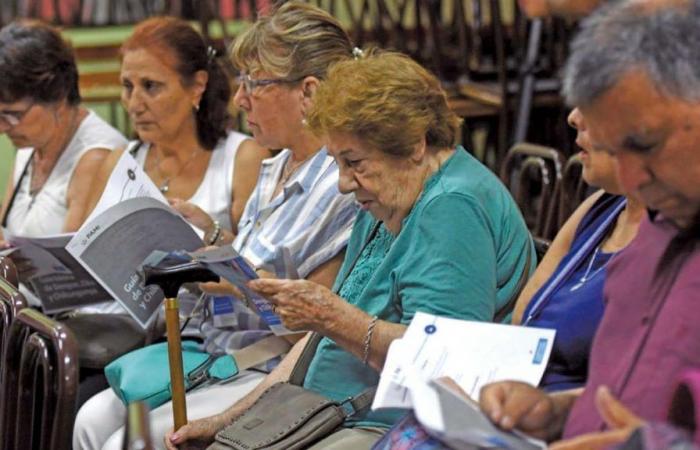
ANSES retirees and pensioners start July with some certainties, among them that, after the approval of the Bases Law, they will finally the moratorium will remain in force which allows to regularize pension debts and grant retirement to people who have not reached 30 years of contributions to SIPA.
In addition, and as explained by the lawyer specializing in pension issues, Ariel Samana, They already know how much the minimum salaries will be because from now on – and unless the opposition Deputies’ project advances – they are governed only by the Consumer Price Index published last (in this case May).
What can happen with retirements in the coming months?
Authoritarians don’t like this
The practice of professional and critical journalism is a fundamental pillar of democracy. That is why it bothers those who believe they are the owners of the truth.
“The minimum asset in July will be $215,622, and although the government will pay the bonus, the amount it will reach still needs to be defined,” said the lawyer and added that “at the other end of the income, The retirees who earn the most will earn $1,450,900 with which they are left out of the Income Tax”.
It is worth considering thatafter more than 6 months of management and a lot of official expectation, andThe Government managed to get the Chamber of Deputies to approve it in the early hours of this Friday, June 28. the first two laws since the president took office Javier Milei: the Postponed Law of Bases and the fiscal package with the restitution of the Income Tax and the reduction of the Personal Assets rate.
Among the things that were left out of the Base Law is the privatization of several companies that the government insisted on, as well as the elimination of the pension moratorium, so the special regime that allows regularizing pension debts and granting retirement to people that did not reach 30 years of contributions to SIPA, will remain in force.
Those who will be left out: they worked all their lives, but they will not be able to retire
Lawyers specialized in pension issues had already been anticipating that The repeal of the early moratorium would mainly affect women, since only 10% complete the 30 years of contributions upon reaching retirement age.
Data from the same system show that in Argentina, 9 out of 10 women retire under moratorium. Most do not have the necessary contributions, either because they spent more time than men on unpaid care work or because they had precarious jobs. The situation for men is also complicated given that only 7 out of 10 must also access a payment plan in order to retire, which is explained by the high rates of informality in the labour market.
The project of the opposition deputies that Milei would veto
It is worth remembering that at the beginning of June the Lower House gave half approval to a project that proposes a new retirement mobility formula. It was approved by 160 affirmative votes, 72 negative votes and 8 abstentions. Now the logical path is for it to be discussed in Senators and debated.
The agreed text proposes a monthly update based on the latest data available from the Consumer Price Index (IPC). In addition, an extra compensation -or “splice”- will be included with 8.1%given that the Government granted 12.5% that does not cover the 20.6% inflation in January (the month that is left out of the update).
“I will defend the fund with a pure veto”: Milei’s reaction after the new retirement formula approved in Deputies
Furthermore, it was defined that the minimum asset will guarantee the Coverage of the basic basket of goods for the elderly. In turn, the opposition included annually an additional 50% of the variation between the RIPTE (average salaries) and the CPI to enable the possibility of improving pensions in contexts of economic growth.
Now, the first to criticize the project was President Javier Milei himself, who tried to “fiscal degenerates” to legislators for approving an increase that would put the fiscal surplus at risk, with which he defined that he would veto it if approved.
lr





